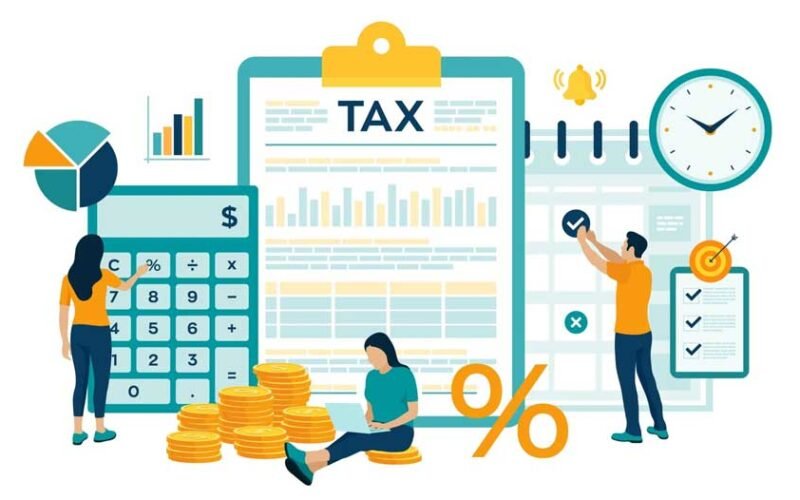When it comes to managing Texas business taxes, knowing the key deadlines and lesser-known deductions can mean the difference between maximizing your cash flow and facing avoidable penalties. Whether you’re running a sole proprietorship, LLC, partnership, or corporation in the Lone Star State, it’s crucial to understand the nuances of Texas tax obligations. This blog will walk you through the essential filing deadlines and uncover valuable deductions that many business owners overlook.
Why Texas Is Different
Unlike many states, Texas does not impose a traditional state income tax on individuals or businesses. However, this doesn’t mean Texas businesses are off the hook when it comes to taxation. The primary business tax in Texas is the franchise tax, which applies to most entities that do business in the state.
What is the Franchise Tax?
The Texas franchise tax is essentially a tax on the privilege of doing business in Texas. It is calculated based on a business’s gross receipts, with the current rate ranging from 0.375% to 0.75%, depending on the type of business and whether the business qualifies for the EZ Computation method.
Key Tax Filing Deadlines in Texas
-
Annual Franchise Tax Report
- Due Date: May 15 each year
- Applies To: Corporations, LLCs, professional associations, business trusts, and other taxable entities
- File With: Texas Comptroller of Public Accounts
If May 15 falls on a weekend or holiday, the deadline is moved to the next business day. Unless exempt, businesses must file both a franchise tax report and a public information report (PIR).
-
Sales and Use Tax
- Filing Frequency: Monthly, quarterly, or annually
- Due Dates:
- Monthly: 20th of the following month
- Quarterly: 20th of the month following each quarter
- Annually: January 20th of the following year
This tax applies to businesses that sell, lease, or rent taxable goods or services. Late filings may incur penalties and interest.
-
Employment Taxes
- Businesses with employees must handle:
- Unemployment tax: Reported to the Texas Workforce Commission
- Federal employment taxes: Including Social Security, Medicare, and FUTA
-
Federal Business Tax Returns
While not specific to Texas, these are important for compliance:
- Sole proprietors: Schedule C with 1040 – April 15
- Partnerships: Form 1065 – March 15
- S Corporations: Form 1120-S – March 15
- C Corporations: Form 1120 – April 15 (or 15th day of the 4th month after the fiscal year ends)
Filing extensions are available but must be requested on time.
Penalties for Missing Deadlines
Missing Texas business tax deadlines can lead to significant penalties:
- $50 late filing penalty: For reports filed after the due date, even if no tax is due
- 5% penalty: If tax is not paid by the due date
- An additional 5% penalty: If tax remains unpaid 30 days later
Interest also accrues on unpaid tax at the prime rate plus 1%.
Little-Known Deductions for Texas Businesses
While Texas may not have a corporate income tax, there are still deductions and credits that can reduce your tax liability. Here are some of the most overlooked:
-
Cost of Goods Sold (COGS) Deduction
Businesses can deduct the COGS from their total revenue when calculating franchise taxes. Eligible COGS include:
- Raw materials
- Labor costs related to production
- Storage and handling
- Depreciation of manufacturing equipment
Service-based businesses are often unaware that some costs may qualify under specific categories.
-
Compensation Deduction
An alternative to COGS, this allows businesses to deduct up to $390,000 per person (2025 threshold) in wages and benefits. This can be advantageous for service-oriented firms with high payrolls but minimal tangible goods.
-
EZ Computation Deduction
For businesses with annual revenue below $20 million, the EZ Computation method allows a flat tax rate (currently 0.331%) on total revenue, without needing to itemize deductions.
-
Research and Development (R&D) Credit
Texas offers an R&D credit against the franchise tax for companies investing in innovation. This includes:
- Developing new or improved products
- Enhancing manufacturing processes
- Software development
The credit can either reduce the tax owed or be carried forward for up to 20 years.
-
Temporary Exemptions
Some new businesses and certain nonprofits may qualify for a temporary exemption from the franchise tax. Always verify eligibility with the Texas Comptroller’s office.
Tips to Stay Compliant
-
Use a Tax Calendar
A detailed tax calendar helps ensure you never miss a deadline. Include due dates for all federal, state, and local obligations.
-
File Early
Filing ahead of schedule gives you buffer time in case you need to fix errors or gather more documentation.
-
Work With a Tax Professional
A CPA or tax advisor familiar with Texas business taxes can uncover deductions you may have missed and ensure you file correctly.
-
Maintain Accurate Records
Keep detailed books and records of all income, expenses, payroll, and assets. Proper documentation supports your claims in case of an audit.
Frequently Asked Questions
Do sole proprietors have to pay the franchise tax?
Generally, no. Sole proprietorships and certain general partnerships composed only of natural persons are exempt.
Can I file the franchise tax online?
Yes, you can file electronically through the Texas Comptroller’s Webfile system. You’ll need a Webfile number (available on your annual notice).
What if I operate in multiple states?
If you’re a Texas-based business operating in other states, you may have nexus in those states and be subject to their tax laws in addition to the Texas franchise tax.
How do I claim the R&D credit?
File Form 05-178 with your franchise tax report and maintain contemporaneous documentation supporting your R&D activities.
Final Thoughts
Navigating Texas business taxes doesn’t have to be daunting. With an understanding of the core filing deadlines and strategic use of available deductions, you can stay compliant and potentially save thousands each year. From leveraging the EZ Computation method to claiming the underutilized R&D credit, knowing the intricacies of the tax code empowers you to make better financial decisions for your business.
If you’re unsure about your obligations or think you may be missing out on deductions, consult a Texas tax professional to audit your strategy and keep your business ahead of the curve.










